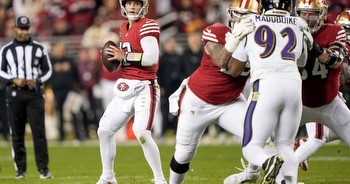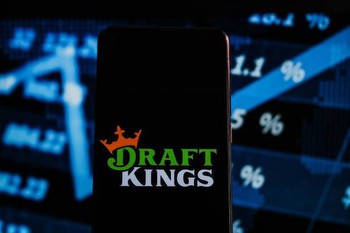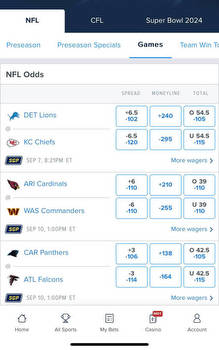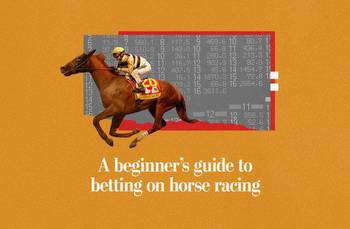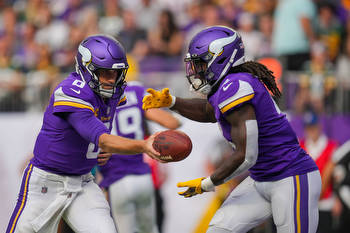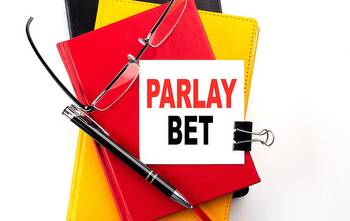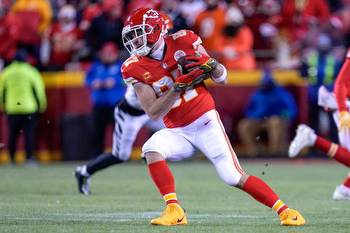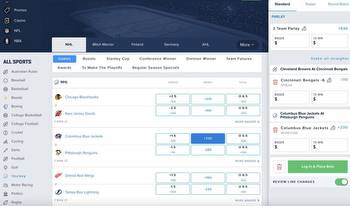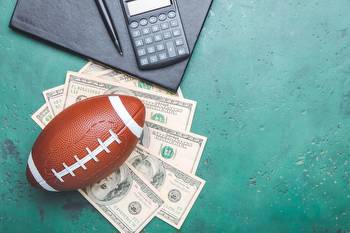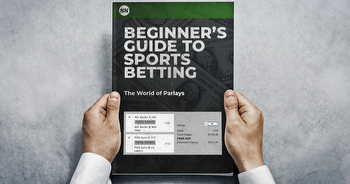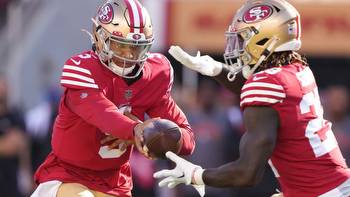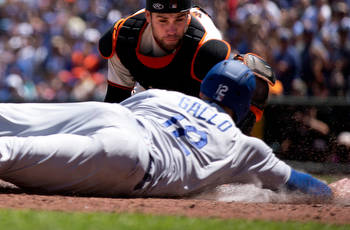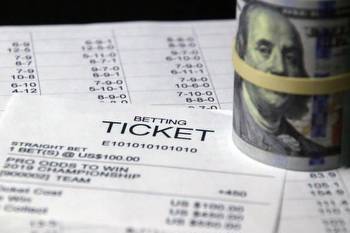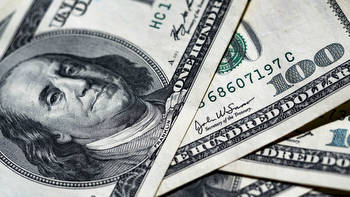Parlay Bet: Definition, How It Works, Example
In sports betting, a parlay bet is when a bettor makes two or more bets and ties them together into one bet. A parlay bet may contain two individual bets or many more. Depending on the sportsbook or the region, they may also be called “accumulators” or “multis.”
The disadvantage of a parlay bet is that if any of the bets in the parley loses, then the entire parlay is lost. This makes parlay bets very difficult to win, especially if they are made up of many individual bets. The advantage is that if all the individual wagers win, the bettor can get a bigger payout.
“Parlay [bets] are popular because everyone dreams of turning a little bit of cash into a big payday,” says Steven Petrella, deputy editor for The Action Network. “Sportsbooks love to promote big parlay winners on Twitter and Instagram, but they’re not posting the thousands of losing parlay tickets.”
Also, as Petrella puts it, as long as “bettors are not betting to make money, parlay bets can be entertaining: There’s zero doubt the potential to turn $10 into $500 is entertaining.”
- In sports betting, a parlay bet is when a bettor makes two or more bets and ties them together
into one bet. A parlay bet may contain two individual bets or many more. - The disadvantage of a parlay bet is that if any of the bets in the parlay loses, then the entire parlay is lost.
- Parlay bets are very risky.
- Gambling always involves a negative expected return. The house always has the advantage.
What Is a Parlay Bet?
A parlay bet can be defined quite simply. It is a bet made up of a number of smaller bets. A parlay is a way of linking bets together, so they are treated as one big bet.
You must win every smaller bet to win the parlay bet—if you lose just one of the smaller bets, then the entire parlay is lost. On the other hand, a sportsbook will give you bigger and bigger payouts for adding more games to your parlay, and if you win, you may win big. But linking your bets together in this way also makes it much more likely that you’ll lose.
In 2018, the U.S. Supreme Court gave U.S. states permission to legalize sports betting if they wish to do so. It is still fully illegal in 17 states, including California, Massachusetts, and Texas. In four other states, there is some form of pending legislation.
Example of a Parlay Bet
Let’s say a bettor wants to wager $100 on a three-team baseball parlay with the Los Angeles Angels +150, Seattle Mariners +100, and Detroit Tigers +203. If all three teams win, then the $100 bet pays out a whopping $1,515.
Here is a simple example: If you think that both the Green Bay Packers (+4) and Baltimore Ravens (-6) will cover their spreads on an NFL Sunday, then you could take $10 and individually bet on these teams ($5 on each). If you are right and win both bets, you will win close to $19. However, you can also parlay these bets together. In this case, your risk is higher, but your return will also be higher if you win both.
How much higher? About 2.65 times your bet. The possible outcomes would be as follows:
- Both teams cover: Win ($26.50)
- Packers cover, Ravens do not: Loss (-$10)
- Ravens cover, Packers do not: Loss (-$10)
- Both teams do not cover: Loss ($-10)
As you can see, this increases your risk, because you must win both bets for the parlay to pay out. But you might also double your winnings over making two individual bets.
This is a simple example. Parlays can be a lot more complicated and can consist of many more individual bets. For instance, you could bet on five teams covering their spread instead of just two. In this case, if just one team doesn’t cover their spread, then you’ll lose the whole bet. However, if all five covered, the payout would be very high: around +2335 (that is, a win of $230.35 on a $10 bet).
How to Make a Parlay Bet
There are many ways of making a parlay bet. Any online or in-person sportsbook will let you place this kind of bet and will calculate the odds for you. In casinos, another popular option is to use a parlay card. You use this card to choose your teams and totals, then give this to the ticket writer in the sportsbook, along with the money that you will wager. A similar concept has recently started to appear on mobile betting platforms.
Casual bettors should be very wary of parlay bets. While these bets can promise huge payouts, they are very risky and are not an investment strategy.
Calculating Parlay Payouts
Calculating the odds of parlay bets can be tricky, partially because of how odds are expressed in sports betting in the United States. Any sportsbook will calculate your potential winnings from a parlay, and this is often the easiest way of doing it.
It’s possible to work out your payout yourself, though. Here’s how:
- Convert the American odds to decimal odds.
- Multiply all the decimal odds together.
- Multiply the result by your bet amount.
- Subtract your original stake to get the parlay odds.
Let’s take an example. Let’s say that you’re parlaying three point spreads, each at -110. First, convert those odds to decimal, which is 1.91. Then multiply them together:
1.91 x 1.91 x 1.91 = 6.97
Then multiply this by your bet amount. Let’s say you bet $10:
Then subtract your original bet amount:
This means that this parlay pays out $59.70 for every $10 bet. In American odds, that’s +597, meaning this parlay pays nearly 6-1. That’s a great payout, but remember that you’d have to win all three bets to see any payout at all.
There are some quicker ways to work out the odds of parlays. There is a simple rule for -110 wagers, for instance. A double bet pays about 2.6-to-1, and a triple parlay pays about 6-to-1. From there, the odds roughly double for every -110 bet added to the parlay.
There is a simple rule to work out the odds for parlays made up of -110 wagers. A double bet pays about 2.6-to-1, and a triple parlay pays about 6-to-1. From there, the odds roughly double for every -110 bet added to the parlay.
Should You Bet Parlays?
This really depends on what you are trying to achieve through sports betting. But if you are looking to make money, the answer is no.
That’s because bettors are far less likely to win parlay bets than individual bets. Put another way, sportsbooks make more money from parlay bets than from individual bets. A University of Nevada Las Vegas Center for Gaming Research study showed that according to Nevada Gaming Control Board Gaming Revenue Reports, Nevada sportsbooks boasted a nearly 30% hold from 1992 to 2015. In comparison, every other major sport averaged holds of less than 5%.
The reason for this is simple enough: The odds on individual bets are calculated to be about even and to generate a small profit for the sportsbook. That gives you about a 50% chance of making a profit even if you are taking standard bets. But if you pool more and more bets into the same wager, you’re playing right into the sportsbooks’ hands by assuming more risk and limiting your chances of winning.
As Petrella of The Action Network points out, “the math backs that up, too. The real probability of winning four NFL point spreads parlayed together is about +1500,” he says, “yet the sportsbook only offers +1200.”
You might win a big parlay once in a while, but it will likely take you dozens and dozens of losses before you finally cash big. It’s also important to note that if you go 4-1 with a five-team parlay, you lose the entire bet. However, if you bet those five teams individually, you would have profited close to three units or more, depending on the price.
There are other reasons to bet parlays, though. One is that they can be really fun. If you are betting small amounts on 10-team parlays, it’s very unlikely that you’ll win. But if by luck you do predict 10 games correctly, you could win big. It’s the same logic that drives the popularity of the lottery and informal sports pools. As long as you can afford your losses, there is nothing wrong with dreaming big. Just don’t expect to make money over the long term.
How does a parlay bet work?
A parlay in sports betting is when a bettor makes multiple wagers (at least two) and ties them together into the same bet. If any of the bets in the parlay loses, then the entire parlay loses. However, if all wagers win, then the bettor gets a bigger payout.
What happens to my parlay bet in a canceled game?
Most of the time, canceled games simply come off the parlay, and it goes from being a three-game parlay (for instance) to a two-game parlay. You should consult your sportsbook’s rules for full details on how they handle various situations pertaining to various bets.
Why should I avoid parlays?
Most sources will tell you that parlays are a poor way to bet on sports, at least in terms of long-term expected value. That’s because for a parlay to have a positive expected value (EV), all or almost all of the bets in the parlay must have a positive expected value. In other words, you are more likely to lose money on a parlay bet than on individual bets.
If you or someone you know has a gambling problem, call the National Problem Gambling Helpline at 1-800-522-4700, or visit ncpgambling.org/chat to chat with a help line specialist.
The Bottom Line
Parlay bets are made up of two or more bets. They are a way of combining individual bets into one. Parlay bets are much harder to win than regular bets, so they can offer much larger payouts. However, they are not a good strategy if you are looking to make money over the long term.
That doesn’t mean that everyone should avoid parlay bets. As with any form of sports betting, says David Forman, senior director of research at the American Gambling Association, parlay bets can “be enjoyed purely for fun, not as a moneymaking opportunity.”


